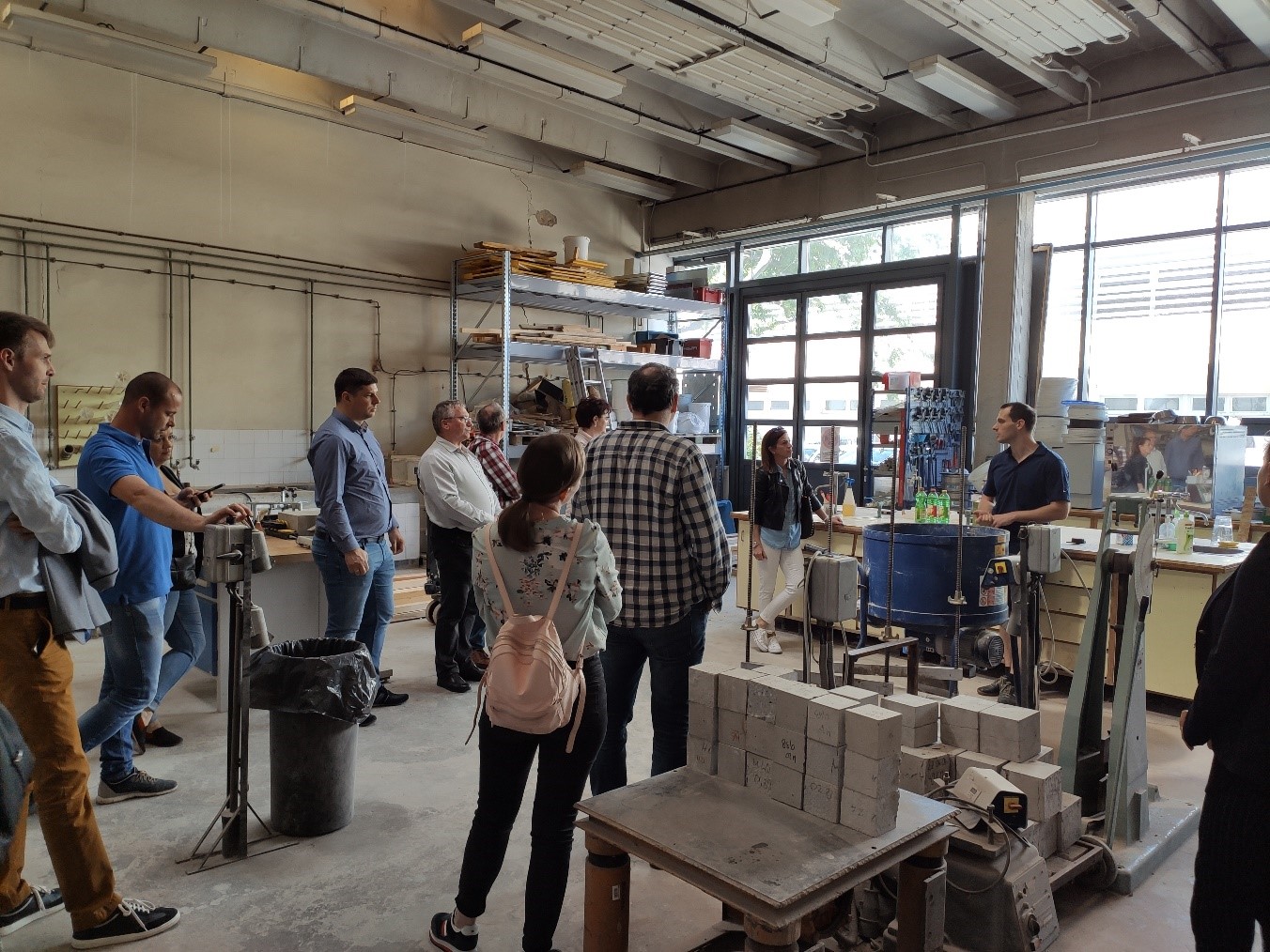Nearly a hundred businesses have joined SZE’s Regional Innovation Platform
Széchenyi István University not only acts as a link between the participants of the Territorial Innovation Platform, but also as a catalyst in the field of research, development and innovation. Through laboratory visits, the institution demonstrates the infrastructure via which it provides state-of-the-art services to its corporate partners. The success of the programme is demonstrated by the fact that, since its launch in 2019, nearly 100 companies have joined the platform, which also contributes to the economic development and competitiveness of the region.
The National Research, Development and Innovation Office (NRDIO), with the policy support of the Ministry of Innovation and Technology, launched the Territorial Innovation Platform (TIP), a regional organisation providing a space and time platform to both explore direct innovation policy directions and to build and strengthen partnerships with local and international innovation ecosystem stakeholders and to create new professional foundations.
Széchenyi István University, in cooperation with the NKFIH and the Győr-Moson-Sopron County Chamber of Commerce and Industry, launched the platform in autumn 2019, which is open to micro, small and medium-sized enterprises, large companies, start-ups, research institutes, professional organisations, chambers and clusters. Since its launch, nearly 100 partners have already taken advantage of the opportunity, putting TIP, based at Széchenyi University, among the national leaders.
 Kornél Vági, Head of the Management Campus Competence Centre at Széchenyi István University (Photo: Csaba József Májer)
Kornél Vági, Head of the Management Campus Competence Centre at Széchenyi István University (Photo: Csaba József Májer)
"This is a very good result, as so many people have signed up despite the fact that after the establishment, the epidemic practically put a halt to in-person events. Now that we had the opportunity to do so again, we immediately organised two laboratory visits for our partners to show them the infrastructure, research, development and innovation potential that the University can offer them," said Kornél Vági, Head of the Management Campus Competence Centre of the institution.
He added the platform was created with the aim of establishing a network of cooperation with the affiliated companies, which can be translated into joint projects and rapid information sharing. The latter will also facilitate joint application opportunities, training and participation in international programmes.
"The TIP is therefore a node that links the office, the University and economic stakeholders," the head of the centre concluded. He said that, in addition to its teaching and research activities, the University's entrepreneurial activities are growing in importance. It has the state-of-the-art knowledge, innovation capacity and laboratory space to provide up-to-date professional services to a wide range of clients.
As an example, he mentioned the cooperation with the Hungarian Public Road Nonprofit Ltd. and the framework agreement for the use of laboratories. He added that this relationship is already a product of the TIP operation, under which a number of measurements important for the company are carried out in the laboratories of the university, which have the appropriate equipment. During a recent tour of the laboratories, staff from the state-owned company visited the institution and, among others, visited the Bridge Structures and Concrete Laboratory, the Geotechnical Laboratory, the Road Laboratory and the Radio Frequency Laboratory of the Digital Development Centre.
 Laboratory visit at Széchenyi István University.
Laboratory visit at Széchenyi István University.
"During the second round of lab visits, additional partner companies were introduced to the services we offer, including in the Cyber Physics lab, the Radio Frequency lab and the Packaging and Environmental Sustainability Labs, during which we identified several new opportunities for cooperation," Kornél Vági said. He stressed that in the future they would like to make these occasions more regular, so that existing collaborations can be enriched with new concrete projects. In addition, within the framework of the Territorial Innovation Platform, other professional programmes in the form of presentations and round tables will also be organised.
"The University's involvement further strengthens the broad partnership that can contribute not only to the economic development of the region, but also to the competitiveness of the country," he concluded.











